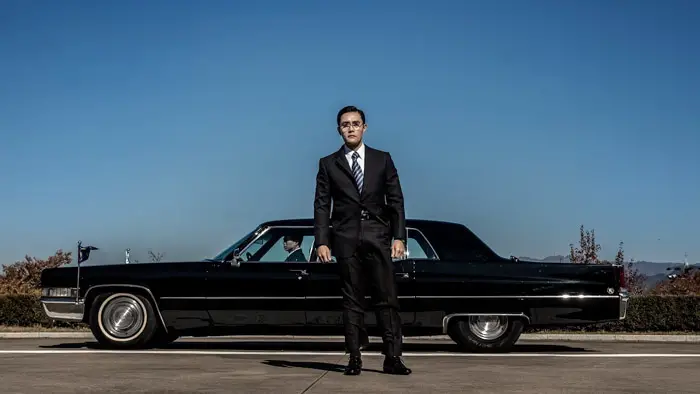(Namsanui bujangdeul-CHIEFS OF NAMSAM)
(director/writer: Min-ho Woo; screenwriters: Ji-min Lee/based on the non-fiction book “Chiefs of Namsan”) by Kim Choong-Seek; cinematographer: Nak-seon Go ; editor: Ji-eun Jeong ; music: Yeong-wook Jo; cast: Lee Byung-Hun (Kim Kyu-Pyeong), Sung-min Lee (President Park), Do-won Kwak (Park Yong-gak), Hee-joon Lee (Kwak Sang-Cheon), Kim Min-Sang(Chief of Staff), Eric Bernard (The French Henchman), John D. Michaels (Congressman Harrington), So-jin Kim (Deborah Shim); Runtime: 104; MPAA Rating: NR; producers: Min-ho Woo/Sarah Kang/Won-guk Kim/Ben Koh; Netflix/Showbox; 2020-S.Korea-in Korean with English subtitles)
“Its history lesson is not for everyone.”
Reviewed by Dennis Schwartz\
The South Korean conventional political thriller is a suspenseful true story (making itself into a Shakespearean tragedy, as some characters are fictionalized). Also, perhaps, its history lesson is too detailed in Korean politics for an American audience.
It’s directed by Min-ho Woo (“Inside Men”/”The Drug King”), and is co-written by him and Ji-min Lee. It’s based on the non-fiction book “Chiefs of Namsan” by Kim Choong-Seek, which covers the 40 days of international intrigue leading up to the bloody murder of the S. Korean leader.
It digs into the assassination of the autocratic President Park Chung-hee (Sung-min Lee), who was assassinated by Kim (Lee Byung-Hun), his head of security, in 1979. over a power struggle.
It begins with a brief summary of Korea’s history from its 1961 coup until the present, whereby its intelligence agency used its absolute power to keep the unfit Park, the country’s third president, in office, who in the last 18 years had overstayed his welcome and many Koreans thought it was time for him to go.
Flashbacks in b/w are used to make its points.
The characters are dry, following the politics is often difficult and it’s too verbose. Everything is seen through the eyes of the S. Korean CIA (KCIA) director Kim, who shows little emotion but gives a good performance. The director Min-ho traces the days leading up to President Park’s assassination in October 1979, and gives him credit for getting the economy to boom, but blames him for corruption and not being democratic enough for a democratic country. It’s a well-crafted and slickly made, but not one I particularly cared for, or could easily follow without knowing more of the Korean situation.
We follow Kwak (Lee Hee-joon), the former security head, as he’s in exile. In a Koreagate investigation, he voluntarily testifies against his corrupt president in Washington by saying that the President is someone –“who’s making democracy a tragedy in Korea.”

REVIEWED ON 1/25/2021 GRADE: B-